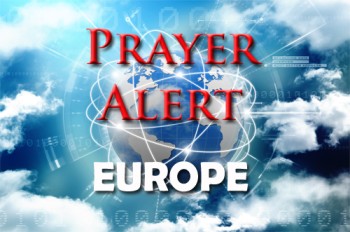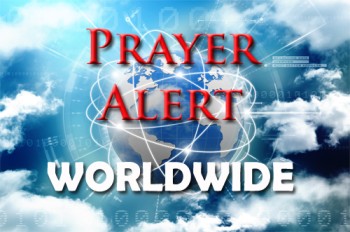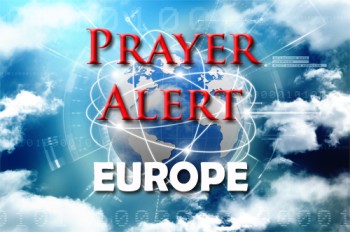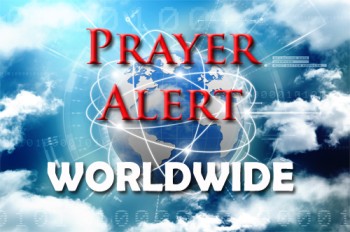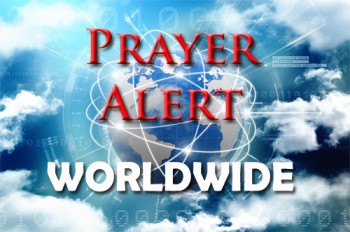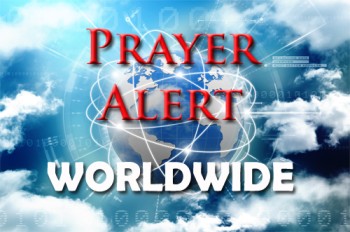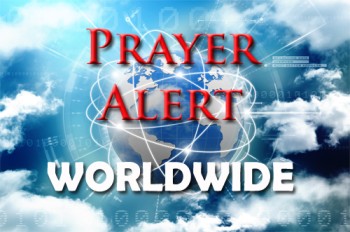Displaying items by tag: USA
Turning Point USA now in over 500 Texas high schools
Texas governor Greg Abbott has announced that over 500 high schools across the state now host chapters of Turning Point USA’s Club America programme, a conservative student movement designed to promote constitutional principles, traditional values, and civic responsibility among young people. At a press conference, he highlighted the growing need for such programmes in shaping future leaders. He honoured the legacy of Charlie Kirk, TPUSA’s founder, who was assassinated last September, recognising his impact in inspiring students to stand for moral clarity and America’s founding ideals. Club America now includes more than 1,200 chapters nationwide, teaching principles such as fiscal responsibility, free markets, and limited government. Several other states, including Florida and Oklahoma, have pledged support for students wishing to establish their own chapters.
Responses to Trump’s criticisms of ‘weak, decaying’ Europe
Donald Trump has intensified his criticism of Europe, portraying the continent as weak’, ‘decaying’, and threatened by immigration. Using inflammatory language, he echoed ‘great replacement’ conspiracy themes, claiming that European countries risk becoming non-viable due to immigration. He insisted European cities such as London and Paris have fundamentally altered, and once again made a personal attack on London’s mayor Sadiq Khan. His remarks followed the recent release of a new US national security strategy warning of Europe’s supposed ‘civilisational erasure’ and signalling support for nationalist parties. European leaders reacted with dismay: Germany’s chancellor Friedrich Merz rejected the idea that Europe needs saving, calling parts of the strategy unacceptable. Pope Leo XIV also cautioned that the shift in US policy risks damaging the long-standing transatlantic alliance, and European Council president António Costa warned Trump not to interfere in Europe’s affairs (see).
Minneapolis: pepper spray used on protesters against crackdown on Somalis
A confrontation between federal agents and residents in a Somali neighbourhood of Minneapolis has heightened fear and tension within the community. Witnesses reported that ICE agents used pepper spray to disperse a crowd of protesters after checking identifications in restaurants, on the streets, and at a senior housing complex. The crackdown follows the decision by Donald Trump to end temporary protected status for Somalis, calling them ‘garbage’ and saying he does not want them in the country. The move has drawn denunciations from leaders of the Somali community and governor Tim Walz. About 84,000 of the 260,000 Somalis in the country live in the Minneapolis-St Paul area, the overwhelming majority of them US citizens. Over half were born in the U.S., and 87 per cent of those born elsewhere are naturalised citizens. Federal officials justify the operation as targeting criminals, giving details of nine criminals who have been arrested recently, but local leaders argue that such actions unfairly stigmatise an entire community.
Two atheists come to faith after watching ‘The Chosen’
Actor Jonathan Roumie, who portrays Jesus in the hit series ‘The Chosen’, says the show’s heartfelt depiction of Christ has led even lifelong atheists to embrace Christianity. He said that two men who had never believed in God were sent the series by friends. Unexpectedly, they were captivated by the first episode, began reading Scripture and attending church, and ultimately converted. He called their transformation remarkable, noting that many viewers express similar experiences. Roumie said his own deep relationship with Christ shaped the sincerity of his performance, helping him convey love, compassion, and authenticity. He also described the emotional and spiritual weight of filming Season 6 (to be released in 2026), which depicts Jesus’ crucifixion; he prayed for insight into Christ’s suffering and sensed God responding.
Joe Rogan finds Bible 'fascinating’, notes Christian kindness
Joe Rogan has spoken openly again about his growing interest in Christianity, saying he finds the Bible deeply compelling and is moved by the kindness of believers he has met. He says he no longer believes Scripture is merely myth, but an ancient record conveying real truth, even if he is still discerning how literally to take its claims. He recently discussed Revelation with his daughter, acknowledging the mystery of how its prophecies will unfold. Rogan has been attending a non-denominational church in Austin, where the Christians’ sincerity and consistent kindness - even in the car park - have deeply impressed him. He described the Bible as 'fascinating,' and said Christianity 'works,' noting how the believers he knows live out their faith with remarkable grace. Over the past year he has been increasingly willing to explore faith publicly, hosting long conversations about Jesus, the supernatural, and the Resurrection, which he now finds more persuasive than secular explanations of the universe. Rogan’s journey continues to draw widespread attention. See
Hungary / USA: Trump gives one-year exemption from sanctions
Donald Trump has granted Hungary a one-year exemption from US sanctions on Russian oil and gas purchases, marking a diplomatic win for Viktor Orbán. The move followed Orbán’s visit to Washington, where Trump expressed sympathy for Hungary’s dependence on Russian energy as a landlocked nation. The decision contrasts sharply with Trump’s recent threats to penalise countries doing business with sanctioned Russian energy firms. In return, Hungary agreed to buy hundreds of millions of dollars’ worth of US natural gas. While the arrangement may ease Hungary’s energy pressures, it risks deepening tensions within the EU, where many leaders oppose Orbán’s continued cooperation with Moscow. Trump praised Orbán’s leadership and hinted at shared goals for ending the war in Ukraine, underscoring their close personal and political alliance amid growing divisions over energy, sanctions, and peace strategy in Europe.
Syria: why al Sharaa’s visit to Washington is so important
In a stunning U-turn of diplomacy, Syrian president Ahmed al Sharaa - once known as Abu Mohammed al Jolani, former leader of the al-Qaeda affiliate Nusra Front - has arrived in Washington for historic talks with Donald Trump. He rose to power following the collapse of Bashar al-Assad’s regime and now leads Syria’s fragile transitional government. Once a fugitive with a $10 million US bounty, he is being welcomed as a potential partner in rebuilding his war-torn nation and countering extremist threats. Washington’s gamble is clear: support Sharaa to stabilise Syria, curb Iranian and Russian influence, and prevent renewed civil war. Yet challenges loom large: sectarian clashes persist, and doubts remain about his transformation from militant to unifier. The visit, the first trip by a Syrian head of state to the USA since the country gained independence in 1948, could redefine alliances and reshape Middle Eastern geopolitics for a generation.
Leading Christian scientist champions truth, wisdom, and humility
Dr Francis Collins, the geneticist who led the Human Genome Project and later oversaw the US pandemic response, has reflected on faith, science, and truth in a deeply divided era. As head of the National Institutes of Health, he saw the rapid creation of Covid-19 vaccines as a miracle of both science and prayer, crediting years of mRNA research and divine guidance for the breakthrough which saved millions of lives. Yet, to his sorrow, many Christians rejected the vaccines and vilified him personally. Conspiracy theorists targeted him with hostility and threats, while some church leaders accused him of politicising faith. Grounded daily in scripture and prayer, Collins continues to champion truth and humility, warning that a society which dismisses evidence in favour of tribal loyalty risks moral decay. His new book, The Road to Wisdom, calls believers to rebuild trust through love, dialogue, and a renewed commitment to truth guided by Christ’s teachings.
South Africa: prominent Afrikaners condemn Trump’s allegations ahead of G20
Donald Trump has declared that no US officials will attend the upcoming G20 summit in Johannesburg, citing ‘human rights’ concerns related to alleged persecution of white Afrikaners. The decision has drawn sharp criticism both internationally and within South Africa. Trump’s administration has taken a hard line against Pretoria, imposing tariffs, cutting aid, and granting fast-track refugee status to Afrikaners while blocking most other refugees. Over forty Afrikaner leaders, including journalists, clergy, and academics, have denounced the president’s claims as false, stressing that no white-owned land has been seized and that violent crime affects all races. They called his narrative divisive and damaging to post-apartheid reconciliation. Following Trump’s decision, a planned visit to Kenya by JD Vance, which was expected to strengthen relationships, has also been cancelled: see
USA: longest-ever government shutdown finally ends, both sides bruised
The longest US government shutdown in history has ended after 43 tense days, restoring pay for federal workers and reopening critical services. Yet its conclusion has left both political parties bruised. Senate Democrats triggered the shutdown by refusing to support a temporary funding bill without guarantees to extend health-care subsidies for low-income Americans. When several Democrats defected to jump ship and vote with the Republicans, they received little more than a promise of a future vote, leaving the party’s progressive wing furious and mainstream figures calling the deal a capitulation. Donald Trump, despite moments of apparent wavering, emerged claiming victory, having conceded virtually nothing of substance. With another funding deadline looming in January and millions facing soaring insurance costs, the end of the shutdown brings only temporary relief.

